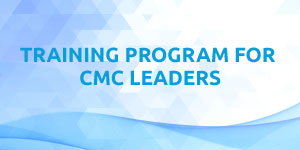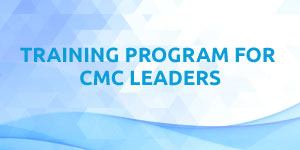Free knowledge to monitor the world of events. Have a look at our must read Blogs on Pharma, Finance, HR, Health and Cross Industry.
Pharmacovigilance Audits & Types of PV Audits
2021-10-13
The audit in the sense a systematic and independent examination of activities to identify whether the evaluated activities were performed according to decided requirements.
Pharmacovigilance (PV) system is defined as a system used by a company to fulfil its legal goals and responsibilities in order to drug safety. It is designed to observe the safety of authorized medical products and identify any change to their risk balance. Pharmacovigilance tasks have to be carried out both for marketed and unmarketed products.
Pharmacovigilance Audits are conducted to verify, by examination and evaluation of objective evidence, the appropriateness and effectiveness of the implementation and operation of a pharmacovigilance system, including its quality system for pharmacovigilance activities. In general, an audit is a systematic, disciplined, independent and documented process for obtaining evidence and evaluating the evidence objectively to determine the extent to which the audit criteria are fulfilled, contributing to the improvement of risk management, control and governance processes.
The entry into force of the new legislation on pharmacovigilance in July 2012, established legal requirements for competent authorities in the Member States and the European Medicines Agency and marketing authorisation holders to perform audits of their pharmacovigilance systems.
The marketing authorisation holder in the EU is required to perform regular risk-based audit(s) of their pharmacovigilance system, including audit(s) of its quality system to ensure that the quality system complies with the quality system requirements. The dates and results of audits and follow-up audits shall be documented.

Laws Governing Pharmacovigilance Audits
Pharmacovigilance audits are mandatory and required by different Laws and Regulations. Laws include Directive 2001/20/EC and 21 Code of Federal Regulations 312.32, which connect to the collection of adverse event data.
Regulations focused on pharmacovigilance in the European Union include the following:
- Registration (EU) 1235/2010
- Directive 2012/84 / EU
- Commission Implementing Regulation (EU) 520/2012
- Regulation (EU) No 1027/2012
- Directive 2012/26 / EU
- Directive 2001/83/EC
- Regulation (EC) No. 726/2004
When and Where PV Audits should be conducted?
A risk-based approach is one that uses techniques to determine the areas of risk, where risk is defined as the probability of an event occurring that will have an impact on the achievement of objectives, taking account of the severity of its outcome and/or likelihood of non-detection by other methods. The risk-based approach to audits focuses on the areas of highest risk to the organisation’s pharmacovigilance system, including its quality system for pharmacovigilance activities. In the context of pharmacovigilance, the risk to public health is of prime importance.
Check Now: Join us at the Pharmacovigilance Audit and Inspection MasterClass which will be streamed ONLINE on the 18th to 20th of October, 2022!
What are the Types of Pharmacovigilance Audits?
The type of audit is depending on the different stages of risk
Strategic level audit planning
The audit strategy includes a list of audits that could reasonably be performed. The audit strategy is used to outline the areas highlighted for audit, the audit topics as well as the methods and assumptions (including e.g. risk assessment) on which the audit programme is based. The audit strategy is a high level statement of how the audit activities will be delivered over a period of time, longer than the annual programme, usually for a period of 2-5 years.
The audit strategy should cover the governance, risk management and internal controls of all parts of the pharmacovigilance system including:
- all pharmacovigilance processes and tasks;
- the quality system for pharmacovigilance activities;
- interactions and interfaces with other departments, as appropriate;
- pharmacovigilance activities conducted by affiliated organisations or activities delegated to another organisation (e.g. regional reporting centres, MAH affiliates or third parties, such as contract organisations and other vendors).
Tactical level audit planning
An audit programme is a set of one or more audits planned for a specific timeframe, normally for a year. It should be prepared in line with the long term audit strategy. The audit programme should be approved by upper management with overall responsibility for operational and governance structure.
The risk-based audit programme should be based on an appropriate risk assessment and should focus on:
- the quality system for pharmacovigilance activities;
- critical pharmacovigilance processes;
- key control systems relied on for pharmacovigilance activities;
- areas identified as high risk, after controls have been put in place or mitigating action taken.
- The risk-based audit programme should also take into account historical areas with insufficient past audit coverage, and high risk areas identified by and/or specific requests from management and/or persons responsible for pharmacovigilance activities.
Operational level audit planning
The organisation should ensure that written procedures are in place regarding the planning and conduct of individual audits that will be delivered. Timeframes for all the steps required for the performance of an individual audit should be settled in the relevant audit related procedures, and the organisation should ensure that audits are conducted in accordance with the written procedures.
Individual pharmacovigilance audits should be undertaken in line with the approved risk-based audit programme. When planning individual audits, the auditor identifies and assesses the risks relevant to the area under review and employs the most appropriate risk-based sampling and testing methods, documenting the audit approach in an audit plan.
Check out all our Pharmacovigilance related masterclasses,
- Safety Data Exchange Agreements (SDEAs) and PV Arrangements with External Vendors MasterClass - US edition
- Benefit-risk assessment in Pharmacovigilance and in PBRERs MasterClass with a special focus on PSURs - EU edition
- Signal Management in Pharmacovigilance MasterClass - US edition
- Benefit-risk assessment in Pharmacovigilance and in PBRERs MasterClass with a special focus on PSURs - US edition
Also check our Pharma In-house Training performed by Highly skilled trainers who are fulfils all the needs and wants of your team and company.
By Fazmi Zakam, Junior SEO Executive, GLC Europe, Colombo Office, Sri Lanka.
Get a feel for our events

Training Program for CMC Leaders - EU edition
14th September 2026 - 09th April 2027
Rich with practical insights and real-world applications
learn more >>
Training Program for CMC Leaders - US edition
14th September 2026 - 09th April 2027
Rich with practical insights and real-world applications
learn more >>
Advanced Stability Testing of Pharmaceuticals MasterClass - US edition
24-27 February, 2026
Increase the likelihood of studies receiving regulatory approval
learn more >>












